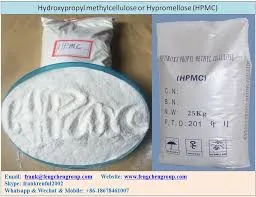
dec . 11, 2024 03:20 Back to list
Exploring the Uses and Benefits of Hydroxypropyl Methyl Cellulose in Various Applications
Hydroxypropyl Methyl Cellulose (HPMC) Applications, Properties, and Benefits
Hydroxypropyl Methyl Cellulose (HPMC) is a versatile plant-derived polymer widely used across various industries due to its unique properties and functionalities. It is a modified cellulose compound, which is a natural polymer derived from cellulose, the primary structural component of plant cell walls. By incorporating hydroxypropyl and methyl groups into the cellulose matrix, HPMC exhibits enhanced solubility and modified rheological properties, making it suitable for numerous applications.
Hydroxypropyl Methyl Cellulose (HPMC) Applications, Properties, and Benefits
In the food industry, HPMC serves as a food additive and is recognized for its emulsifying and thickening properties. It is utilized in the formulation of various food products, including sauces, dressings, bakery goods, and gluten-free products. HPMC acts as a stabilizer that helps maintain the texture and viscosity of food, improving mouthfeel and overall sensory attributes. Furthermore, its ability to retain moisture makes it valuable in extending the shelf life of food products by preventing spoilage caused by microbial growth and moisture loss.
hpmc hydroxypropyl methyl cellulose

The construction industry also significantly benefits from the use of HPMC. It is widely incorporated into tile adhesives, cement, and gypsum-based products due to its excellent water retention and workability properties. HPMC helps extend the open time of adhesives, enabling easier application while preventing early setting. Its film-forming abilities provide adhesion and flexibility, contributing to the durability and performance of construction materials. As sustainable construction practices become more prominent, HPMC's non-toxic, biodegradable nature makes it a favorable choice for environmentally conscious building materials.
In cosmetics and personal care products, HPMC plays a crucial role as a thickening and stabilizing agent. It is found in lotions, creams, shampoos, and gels, where it helps improve texture and appearance. Its ability to form a protective film on the skin contributes to moisturizing effects and enhances product performance. Moreover, HPMC is compatible with various other ingredients commonly used in cosmetic formulations, making it a versatile additive.
The versatility of HPMC is further underscored by its use in various other applications, including agriculture and biotechnology. In agriculture, it is used as a soil conditioner and a biodegradable polymer in controlled-release fertilizers. Its ability to retain moisture and improve soil structure contributes to enhanced plant growth and productivity. In biotechnology, HPMC acts as a medium for cell cultures and a supporting matrix in tissue engineering, showcasing its adaptability across disciplines.
In summary, Hydroxypropyl Methyl Cellulose (HPMC) is a multifaceted polymer that plays a critical role in several industries, including pharmaceuticals, food, construction, cosmetics, agriculture, and biotechnology. Its properties as a binder, thickener, emulsifier, and film-former make it an invaluable component in countless applications. The ongoing research into its functionalities and benefits continues to expand its horizons, paving the way for innovative uses and advancements in technology. As industries strive for efficiency, sustainability, and performance, HPMC remains a pivotal ingredient, exemplifying the intersection of nature and technology in material science.
-
Unlocking the Benefits of HPMC Products: A Gateway to Versatile Applications
NewsAug.07,2025
-
Unleashing the Potential of HPMC Ashland: A Comprehensive Look
NewsAug.07,2025
-
Tile Bonding Cellulose: The Key to Superior Adhesion and Durability
NewsAug.07,2025
-
Hydroxypropyl Methylcellulose Powder: The Versatile Component in Modern Pharmaceuticals
NewsAug.07,2025
-
Hydroxyethyl Cellulose: The Versatile Solution for Various Industries
NewsAug.07,2025
-
Hydroxyethyl Cellulose (HEC): The Versatile Polymer for Various Applications
NewsAug.07,2025







